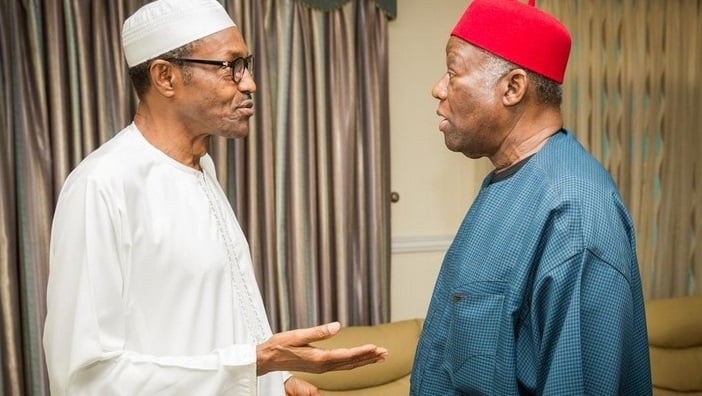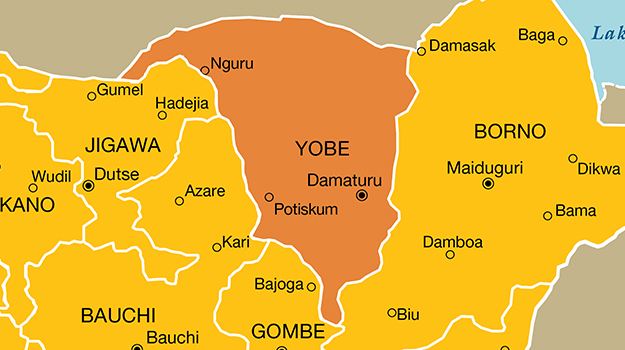BY M.I. JUDE ABAGA
Why have record labels when they’re dying all over the world? Isn’t everything changing? Why don’t we just move on without the record labels? Well. All change doesn’t always mean good change.
When it comes to doing things at the highest level, organisations are pivotal and the most pivotal organisations or structures in the music industry are music/record labels and it’s important we keep them alive.
Our labels in the Nigeria, for the past 15-20 years, have been characterised by labels with a very short lifespan.
When things don’t work, we have to ask ourselves why, because people are coming into our industry wanting to invest and make things better but somehow along the way the percentage of people that survive is very small. That is something that should worry all of us.
Advertisement
The most important problem that I think that we have in the industry is the arrogance about the success of our business. It is something that we should be scared of.
What we are seeing in the music industry today is not something that will survive regardless and let’s not take it for granted. Our music and this industry can still die. There may come a time, if we are not careful, where we would sit and remember a time when Nigerian music industry was vibrant.
The compact disc was once the most important aspect of the record label. Everything started and ended when you had a set album. So the record label will get an artiste then they would record an album. Then the record label will go to the market place to sell the CD’s. Once the CD sold everything was great. People bought private jets and all that based on that. The artiste and the management were now a promotional tool for the CD to be sold.
Advertisement
What now happened was that all of a sudden, a new ‘guy’ called the Internet came about in the form of a company called Napster. It started like a joke when someone came up with a sharing platform for music. In two years, Napster had started to affect the music business but there was still a lot of arrogance about it because it was inconceivable how little-known Napster could take on the giants of Sony music, BMG, EMI and the rest of them.
Now the CDs stopped making as much money, which started making both the artiste and management very unhappy. Everything starts to go wrong from there and many artistes start getting dropped from their labels. This was all happening in the US at the same time our industry in Nigeria just started to blow up.
Fortunately or unfortunately, the Nigerian music industry was reborn into an era of the music business where we didn’t have these problems in the US. The CD structure was already destroyed when we came on board. However, we were still trying to emulate the old system at the beginning.
My first record contract that I signed, I remember talking about it with Audu and Audu was explaining to me that they could do management but they were not so concerned about management. What they are concerned about is selling CDs. Then everybody’s eyes were looking at Alaba, trying to sort out Alaba.
Advertisement
The Internet now starts passing music directly to fans and the record labels start to struggle because they are built to sell CDs and nothing else. That is all they knew how to do. What they don’t know how to do is manage and all of a sudden the artiste is left free by himself and he is left without doing anything. So what does he do?
Because the new artistes came in and the record labels were failing them, they started to develop their own thing. He starts to perform and put his music out on social media to be a part of all that.
Then what happens next is that the marketplace starts to go direct to the new artiste. What the market place now wants is not the CDs but your fan base. They want your views and market to the eyeballs that come with it.
When I made the song ‘Safe’, Audu and I were having a conversation and talking about what to do. Audu listened to the song and said, ‘I don’t think this is a song for radio because it’s too long and for some other reasons’.
Advertisement
I asked if I could give the song out for free and he said yes. Then that’s how I started giving the song out for free and that unconventional rap song became one of the biggest songs of my career.
Because I had an understanding with Audu, we kept adjusting my contract instead of saying the music industry was failing me.
Advertisement
I can tell you that the amount of money that I have made cumulatively from selling CDs in Nigeria is less than N20 million for three albums. It’s something between N13 million and N15 million cumulatively. Via CD sales to Alaba, I am probably the most successful rap artiste in Nigeria because I don’t think rap artistes are getting N5 million per CD.
How does a record label that has had a relationship with me for something like eight years use N13 million to pay their staff shoot videos for the artistes and all of that? How do they survive?
Advertisement
Now I am speaking specifically to my situation. The relationship between the artiste and the record label started changing and decided to adopt something else known as the 360 approach.
Now the artistes becomes the new product where the revenue is generated from. Then the music becomes part of the promotional aspect of the artiste. It’s only through music and videos that you get to know who the artistes are.
Advertisement
The point where money comes into play is when the fans start to interact with the artiste’s brand. It is at this point the artistes starts to think I do not need a record label. Now that I have started making money, I could shoot a video and put it up myself, the people come to me directly and I make money.
This is primarily what you see that perpetuates or industry right now. There are a lot of independent artistes.
So to the question, why do you need a label? It’s quite simply that two heads are better than one. Wherever the money is coming from, organisation will make it better.
What distracts artistes is the name ‘record’ label. What if the record label became invested in promoting the artiste and what the artiste was doing for money.
I was talking to some of my artistes the other day and I was telling them that I don’t need you to sell music, I just need you to be successful in selling something. I don’t care what it is. I will be investing by making music for you so that people can know who you are. From there, if you want to be a talk show host then that is fine.
The reason they will know you is that you are good musician. This, basically, is the new model and it was Chocolate City has adopted. The artistes becomes point at which you interact. The label handles the structuring and puts out your music. What is more important is not how much money you make from your album, but how much impact the album makes when it goes out. Everything else aligns after that.
In the case of independent artistes, what you have is someone that is trying to maximise his earning potential. The artiste is either approached directly or approaching directly. What starts to happen as things grow is that the more I try to do that by myself, certain things start to become more important to me and I start to disappoint other people which in turn starts to affect my brand.
This is always what you are going to see, that an artiste becomes popular, starts doing shows then you are going to hear that they’ve become proud and inaccessible. The reason being that the volume of work that comes to us artistes now is not something an artiste can handle by himself. You cannot handle your PR at the same time handle your promotions and tour and then plan the next album all at the same time.
So the label has moved to a different point in the value chain from being around the CD to being around the artiste.
Let me use myself as an example. I am a musician and I am an advocate and ambassador for certain brands, I am at some level a producer, a writer but I have teams on teams on teams that can help me.
I remember when my manager was talking to me about my endorsement deal with Globacom, he told me two years before it happened that the phase was two years. There were people that were meeting with the agencies and talking with the brand guys. There are people that are on the road making sure the music gets played, there are people that are helping with distribution with media and with the fans and social media. It is only a label that can help me do that efficiently and competitively.
So there is no way I will be where I am without Chocolate City and ‘Chocolate Cities’ are so important. We must keep the record labels alive.
Abaga, vice president of Chocolate city Music who is rumoured to be the replacement for outgoing CEO of Chocolate City Music, recently delivered this presentation at the Nigerian entertainment conference.
Add a comment






